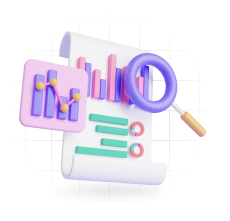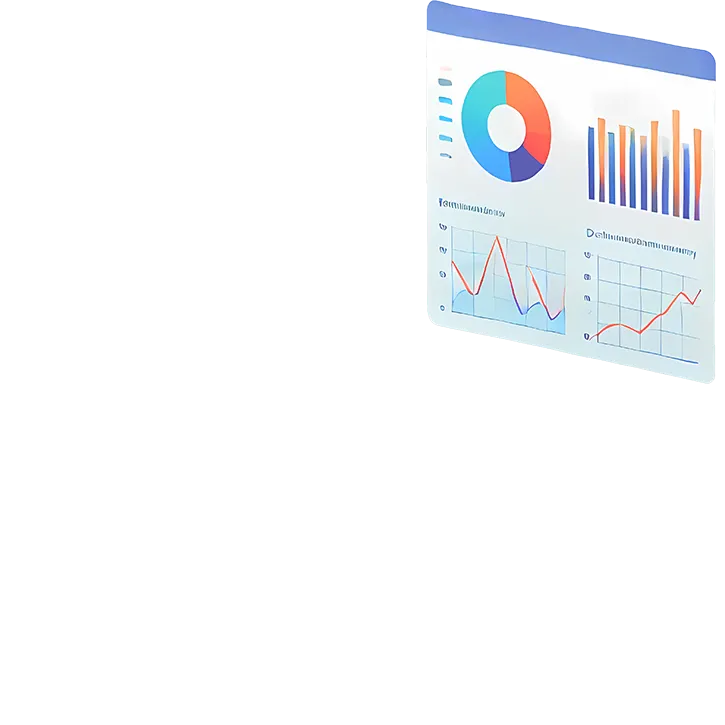


AI & Analytics Solutions











Data analysis also provides researchers with a selection of different tools, such as descriptive statistics, inferential analysis and quantitative analysis.



We collaborate with clients to integrate technical insights, conduct comprehensive literature reviews, and design state-of-the-art methodologies for the model pipeline.
Data can be sourced directly on-premise from your existing infrastructure, such as a data lake. Alternatively, we offer assistance for collection (scrapers, IoT gateways, etc).
We clean, organize, and serialize the data, transforming it through feature engineering to extract the key features representations and to create optimized datasets for analytics or model training.
We explore the data to uncover patterns, trends, tendencies, anomalies, or inherent correlations, generating valuable insights to guide further analysis and decision-making.


This plan is tailored to the specific needs and complexity of your project. Pricing is determined after a thorough analysis to ensure it aligns with your goals and requirements.
Our hourly plan offers flexibility for smaller tasks or ongoing support. Pricing is finalized based on the required effort and complexity after consultation.

Examples of AI technologies include Natural Language Processing (NLP) used in chatbots and virtual assistants, Computer Vision for image and video recognition, Machine Learning models for data predictions, Statistical Models for explainable hypothesis testing, and Reinforcement Learning for robotics and automation. Other popular technologies include diffusion-based models, recommendation systems and AI-driven decision support systems.
AI in customer service can transform the experience by providing 24/7 support through chatbots, automating ticket handling, and using sentiment analysis to gauge customer satisfaction. AI can also enhance personalization, predict customer needs, and reduce response times, leading to better overall engagement and efficiency.
AI is revolutionizing predictive maintenance by analyzing sensor data from machinery to predict equipment failures before they occur. This reduces downtime, extends the life of equipment, and lowers maintenance costs. In industries, AI optimizes production schedules, monitors quality in real-time, and enhances supply chain management for greater efficiency.
AI enhances blockchain by enabling smarter, faster data analysis and decision-making processes. It can be used to monitor transactions for fraud and network analysis, create intelligent contracts that can adapt to changing conditions, forecast tokenomics trends. AI and blockchain together improve security, scalability, and efficiency in decentralized systems.
AI is transforming psychology by providing tools for mental health assessment, therapy, and research. AI-driven chatbots can offer preliminary mental health support, while sentiment analysis and natural language processing help assess emotional states. In research, AI helps analyze large datasets to uncover patterns in behavior and cognition, paving the way for personalized therapy solutions and early detection of mental health disorders.
Our pricing structure is flexible and depends on the scope and nature of the project. For well-defined deliverables, we often work on a project basis with a fixed price divided in stages. For ongoing, iterative engagements, hourly or retainer-based pricing may be used. We tailor our approach to meet the specific needs of our clients.